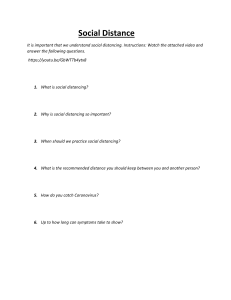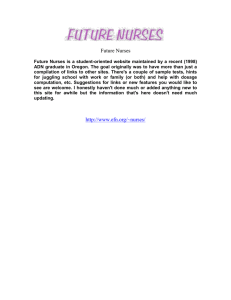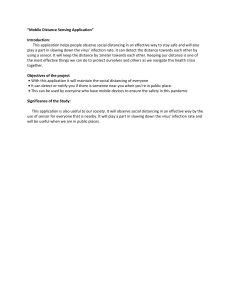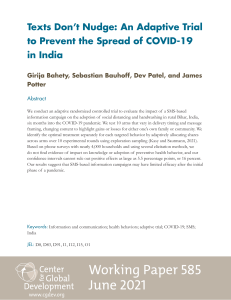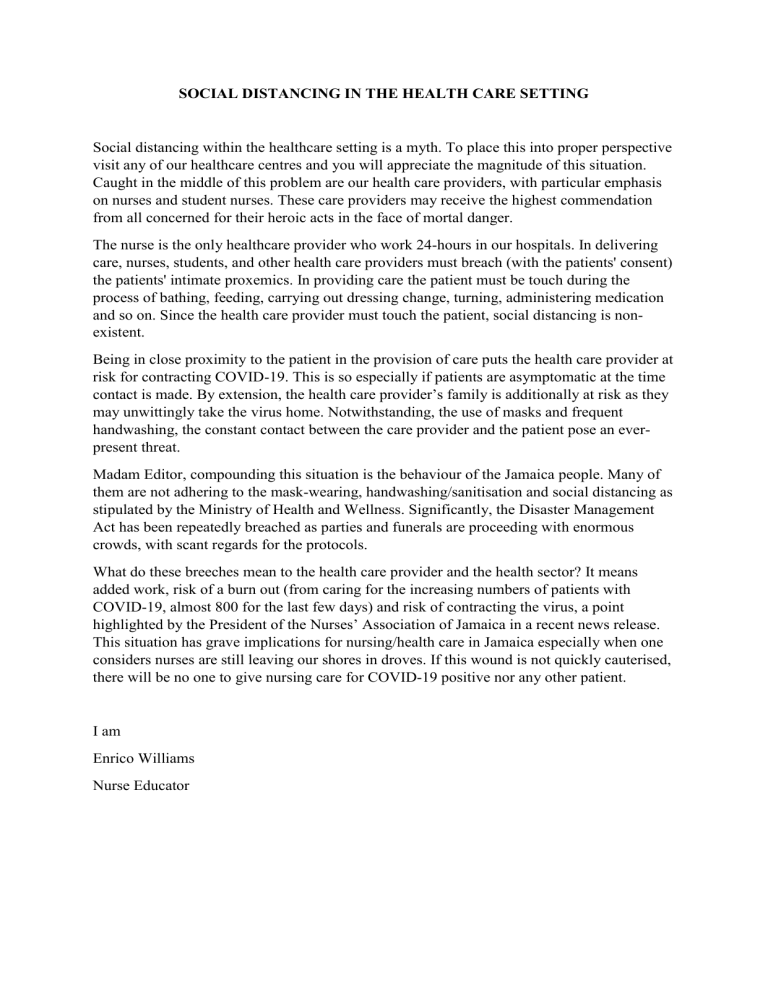
SOCIAL DISTANCING IN THE HEALTH CARE SETTING Social distancing within the healthcare setting is a myth. To place this into proper perspective visit any of our healthcare centres and you will appreciate the magnitude of this situation. Caught in the middle of this problem are our health care providers, with particular emphasis on nurses and student nurses. These care providers may receive the highest commendation from all concerned for their heroic acts in the face of mortal danger. The nurse is the only healthcare provider who work 24-hours in our hospitals. In delivering care, nurses, students, and other health care providers must breach (with the patients' consent) the patients' intimate proxemics. In providing care the patient must be touch during the process of bathing, feeding, carrying out dressing change, turning, administering medication and so on. Since the health care provider must touch the patient, social distancing is nonexistent. Being in close proximity to the patient in the provision of care puts the health care provider at risk for contracting COVID-19. This is so especially if patients are asymptomatic at the time contact is made. By extension, the health care provider’s family is additionally at risk as they may unwittingly take the virus home. Notwithstanding, the use of masks and frequent handwashing, the constant contact between the care provider and the patient pose an everpresent threat. Madam Editor, compounding this situation is the behaviour of the Jamaica people. Many of them are not adhering to the mask-wearing, handwashing/sanitisation and social distancing as stipulated by the Ministry of Health and Wellness. Significantly, the Disaster Management Act has been repeatedly breached as parties and funerals are proceeding with enormous crowds, with scant regards for the protocols. What do these breeches mean to the health care provider and the health sector? It means added work, risk of a burn out (from caring for the increasing numbers of patients with COVID-19, almost 800 for the last few days) and risk of contracting the virus, a point highlighted by the President of the Nurses’ Association of Jamaica in a recent news release. This situation has grave implications for nursing/health care in Jamaica especially when one considers nurses are still leaving our shores in droves. If this wound is not quickly cauterised, there will be no one to give nursing care for COVID-19 positive nor any other patient. I am Enrico Williams Nurse Educator
